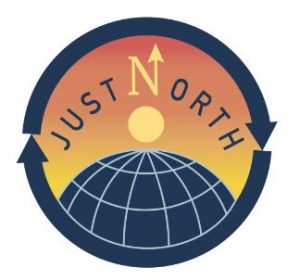Digital platforms and the online services that they provide have become an indispensable and ubiquitous part of modern lifestyles, mediating our jobs, hobbies, patterns of consumption and forms of communication. However, no one is steering this development, or closely looking at the impacts that it may have on remote communities in the Arctic and Nordic region, a hotspot for datacenter development.
Sovacool, Upham, and C Monyei
Digital platforms and the online services that they provide have become an indispensable and ubiquitous part of modern lifestyles, mediating our jobs, hobbies, patterns of consumption and forms of communication. However, no one is steering this development, or closely looking at the impacts that it may have on remote communities in the Arctic and Nordic region, a hotspot for datacenter development. Moreover, unlike other areas of energy consumption or technology adoption prone to rich, qualitative assessments, such work on datacenters involving local stakeholders and environmental concerns is less common, particularly at a larger scale. In this study, based on novel mixed methods—including corporate data, expert interviews, focus groups, and extensive site visits—across three countries, we offer a geographically and technologically bounded assessment looking at the sustainability impacts of datacenters on local communities. We ask: What impacts are occurring as part of datacenter development or planning proposals in Greenland, Iceland, and Norway? What is the actual and anticipated scale of those impacts on local Arctic communities? Finally, what impacts to datacenter development occur at the “whole systems” level? We examine not only impacts onsite at existing or proposed datacenters, but an entire range of consequences including the manufacturing of equipment, the laying of data cables, the construction of buildings, and issues of the dark web, cryptocurrency mining, hacking, spying, waste and decommissioning. Moreover, we humanize risks and benefits not only across scales, but also categorical types, including local impacts such as boom and bust cycles, the displacement of indigenous groups for land – particularly for power supply - and impacts on employment, especially after datacenters may close.
Read the full article:
https://www.sciencedirect.com/science/article/pii/S2214629622000019
JUSTNORTH
JUSTNORTH is a project designed to explore the multitude of ethical systems that coexist in the Arctic, as a starting point to assess the viability of new economic activities in the region. For the millions of people who live both inside and outside the Arctic and are affected by these economic activities, decisions are made through utilitarian ethical principles: viability of an activity is based on profitability and technical feasibility, with little regard to questions of whether it is ethically right or wrong for the impacted human populations or the environment. Global climate change has launched intense speculation on Arctic resources. Increasing geopolitical tensions among some of the Arctic states increases the importance of respecting different value systems while finding common values to help strengthen the links between Arctic and non-Arctic entities. Significant practice and policy gaps in existing Arctic economic activities have led to development that is unsustainable.
Through understanding current practices of development in the Arctic through the lens of 18 case studies, JUSTNORTH aims to develop conceptual frameworks, indices and a negotiation tool, for reconciling multiple ethics and value systems. These will provide a cornerstone for determining the viability of economic activities in the Arctic, as well as clarify policy, legal, and regulatory pathways for implementing ethic-based decision-making principles.
Global climate change has launched intense speculation on Arctic resources. Increasing geopolitical tensions among some of the Arctic states increases the importance of respecting different value systems while finding common values to help strengthen the links between Arctic and non-Arctic entities. Significant practice and policy gaps in existing Arctic economic activities have led to development that is unsustainable.
Through understanding current practices of development in the Arctic through the lens of 18 case studies, JUSTNORTH aims to develop conceptual frameworks, indices and a negotiation tool, for reconciling multiple ethics and value systems. These will provide a cornerstone for determining the viability of economic activities in the Arctic, as well as clarify policy, legal, and regulatory pathways for implementing ethic-based decision-making principles.
Project details
- Project title: “Toward Just, Ethical and Sustainable Arctic Economies, Environments and Societies”
- Funding scheme: European Union Horizon 2020 Programme (EU H2020, Grant agreement ID: 869327)
- Duration: 3 years (1 June 2020 – 30 November 2023)
- Project coordinator: Uppsala Universitet, Dr. Corine Wood-Donnelly
- Project website: www.justnorth.eu/
